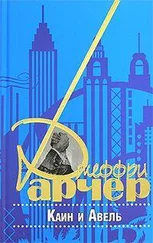Malik gave the Commissioner a weak smile as he came to a halt in front of him.
‘Thank you for agreeing to see me, sir,’ he said quietly. Even his voice had shrunk.
The Commissioner nodded, waved him to the chair on the other side of his desk and said, ‘I have a busy morning ahead of me, Malik, so perhaps you could get straight to the point.’
‘Of course, sir,’ Malik replied, even before he’d sat down. ‘It’s simply that I am looking for a job.’
The Commissioner had considered many reasons why Malik might want to see him, but seeking employment had not been among them.
‘Before you laugh,’ continued Malik, ‘please allow me to put my case.’
The Commissioner leant back in his chair and placed the tips of his fingers together, as if in silent prayer.
‘I have spent too much of my life in jail,’ said Malik. He paused. ‘I’ve recently reached the age of fifty, and can assure you that I have no desire to go back inside again.’
The Commissioner nodded, but didn’t express an opinion.
‘Last week, Commissioner,’ continued Malik, ‘you addressed the annual general meeting of the Mumbai Chamber of Commerce. I read your speech in the Times with great interest. You expressed the view to the leading businessmen of this city that they should consider employing people who had served a prison sentence — give them a second chance, you said, or they will simply take the easy option and return to a life of crime. A sentiment I was able to agree with.’
‘But I also pointed out,’ interrupted the Commissioner, ‘that I was only referring to first offenders.’
‘Exactly my point,’ countered Malik. ‘If you consider there is a problem for first offenders, just imagine what I come up against, when I apply for a job.’ Malik paused and straightened his tie before he continued. ‘If your speech was sincere and not just delivered for public consumption, then perhaps you should heed your own advice, and lead by example.’
‘And what did you have in mind?’ asked the Commissioner. ‘Because you certainly do not possess the ideal qualifications for police work.’
Malik ignored the Commissioner’s sarcasm and ploughed boldly on. ‘In the same paper in which your speech was reported, there was an advertisement for a filing clerk in your records department. I began life as a clerk for the P & O Shipping Company, right here in this city. I think that you will find, were you to check the records, that I carried out that job with enthusiasm and efficiency, and on that occasion left with an unblemished record.’
‘But that was over thirty years ago,’ said the Commissioner, not needing to refer to the file in front of him.
‘Then I will have to end my career as I began it,’ replied Malik, ‘as a filing clerk.’
The Commissioner didn’t speak for some time while he considered Malik’s proposition. He finally leant forward, placed his hands on the desk, and said, ‘I will give some thought to your request, Malik. Does my secretary know how to get in touch with you?’
‘Yes, she does, sir,’ Malik replied as he rose from his place. ‘Every night I can be found at the YMCA hostel on Victoria Street.’ He paused. I have no plans to move in the near future.’
Over lunch in the officers’ dining room, Commissioner Kumar briefed his deputy on the meeting with Malik.
Anil Khan burst out laughing. ‘Hoist with your own petard, Chief,’ he said with considerable feeling.
‘True enough,’ replied the Commissioner as he helped himself to another spoonful of rice, ‘and when you take over from me next year, this little episode will serve to remind you of the consequences of your words, especially when they are delivered in public.’
‘Does that mean that you are seriously considering employing the man?’ asked Khan, as he stared across the table at his boss.
‘Possibly,’ replied Kumar. ‘Why, are you against the idea?’
‘You are in your last year as Commissioner,’ Khan reminded him, ‘with an enviable reputation for probity and competence. Why take a risk that might jeopardize such a fine record?’
‘I feel that’s a little over-dramatic,’ said the Commissioner. ‘Malik’s a broken man, which you would have seen for yourself had you been present at the meeting.’
‘Once a conman, always a conman,’ replied Khan. ‘So I repeat, why take the risk?’
‘Perhaps because it’s the correct course of action, given the circumstances,’ replied the Commissioner. ‘If I turn Malik down, why should anyone bother to listen to my opinion ever again?’
‘But a filing clerk’s job is particularly sensitive,’ remonstrated Khan. ‘Malik would have access to information that should only be seen by those whose discretion is not in question.’
‘I’ve already considered that,’ said the Commissioner. ‘We have two filing departments: one in this building, which is, as you rightly point out, highly sensitive, and another based on the outskirts of the city that deals only with dead cases, which have either been solved or are no longer being followed up.’
‘I still wouldn’t risk it,’ said Khan as he placed his knife and fork back on the plate.
‘I’ve cut down the risk even more,’ responded the Commissioner. ‘I’m going to place Malik on a month’s trial. A supervisor will keep a close eye on him, and then report directly back to me. Should Malik put so much as a toe over the line, he’ll be back on the street the same day.’
‘I still wouldn’t risk it,’ repeated Khan.
On the first of the month, Raj Malik reported for work at the police records department on 47 Mahatma Drive, on the outskirts of the city. His hours were eight a.m. to six p.m. six days a week, with a salary of nine hundred rupees a month. Malik’s daily responsibility was to visit every police station in the outer district, on his bicycle, and collect any dead files. He would then pass them over to his supervisor, who would file them away in the basement, rarely to be referred to again.
At the end of his first month, Malik’s supervisor reported back to the Commissioner as instructed. ‘I wish I had a dozen Maliks,’ he told the chief. ‘Unlike today’s young, he’s always on time, doesn’t take extended breaks, and never complains when you ask him to do something not covered by his job description. With your permission,’ the supervisor added, ‘I would like to put his pay up to one thousand rupees a month.’
The supervisor’s second report was even more glowing. ‘I lost a member of staff through illness last week, and Malik took over several of his responsibilities and somehow still managed to cover both jobs.’
The supervisor’s report at the end of Malik’s third month was so flattering that when the Commissioner addressed the annual dinner of the Mumbai Rotary Club, not only did he appeal to its members to reach out their hands to ex-offenders, but he went on to assure his audience that he had heeded his own advice and been able to prove one of his long-held theories. If you give former prisoners a real chance, they won’t reoffend.
The following day, the Mumbai Times ran the headline:
COMMISSIONER LEADS BY EXAMPLE
Kumar’s sentiments were reported in great detail, alongside a photo of Raj Malik, with the caption, a reformed character. The Commissioner placed the article on his deputy’s desk.
Malik waited until his supervisor had left for his lunch break. He always drove home just after twelve and spent an hour with his wife. Malik watched as his boss’s car disappeared out of sight before he slipped back down to the basement. He placed a stack of papers that needed to be filed on the corner of the counter, just in case someone came in unannounced and asked what he was up to.
Читать дальше












